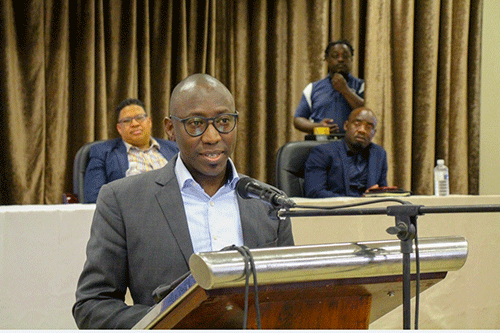SWAKOPMUND – The African continent is grappling with a staggering financial loss of approximately N$750 billion annually due to illicit financial flows and other various forms of organised crime.
This startling revelation was made by the governor of the Erongo region, Neville Andre, during a three-day workshop in Swakopmund.
The heads of Anti-Corruption agencies from the Southern African Development Community (SADC) region were attending the workshop that highlighted the pressing need for collaborative efforts to combat corruption, money laundering, and related crimes in the region. The aim of the workshop was to focus on efforts, aligning them with emerging corruption trends and issues within the framework of the Protocol and the Strategic Anti-Corruption Action Plan.
According to Andre, corruption is a global problem, not limited to a single continent or region. “It is indeed a cross-border crime that hinders economic development, reduces competition and efficiency, lowers public revenue, increases public spending, lowers productivity, and undermines the rule of law and democratic values,” he added.
Andre further said corrupt practices take place at the interface between the public sector, the private sector, and civil society. This, he said, is why collaboration between stakeholders is critical.
Also speaking at the same event, the chairperson of the SADC Anti-Corruption Committee, Thom Shamakamba, said corruption remains a major challenge in the SADC region and there is an urgent need to address it. Additionally, it continues to be a hindrance to economic and human development as it undermines democracy, the rule of law, public trust in State institutions, and investor confidence in our countries.
“It also undermines good governance and the principles of accountability and transparency. The need for collaborative efforts in tackling it has become even more imperative now than it ever has been, mainly because of its enabling effect on a range of other crimes that cause a huge cost on our countries, such as money laundering and illicit financial flows,” he explained.
According to Shamakamba, SADC governments fully recognise the adverse effects of corruption and have committed to pursuing reforms geared towards improving and strengthening governance, improving service delivery, and accelerating economic growth. He said these aspirations cannot be achieved without enhancing collaboration in the fight against corruption and related crimes, hence the need for collaboration was underscored in the adoption of the Protocol against Corruption in 2001, which came into force in 2005.
“There is, however, much more work that remains ahead of us. We know that our region faces a range of economic challenges which have been worsened by Covid-19, the war in Ukraine, the cost-of-living crisis, the debt crisis in some of our nations, which have severely impacted the economies and high unemployment,” said Shamakamba.



